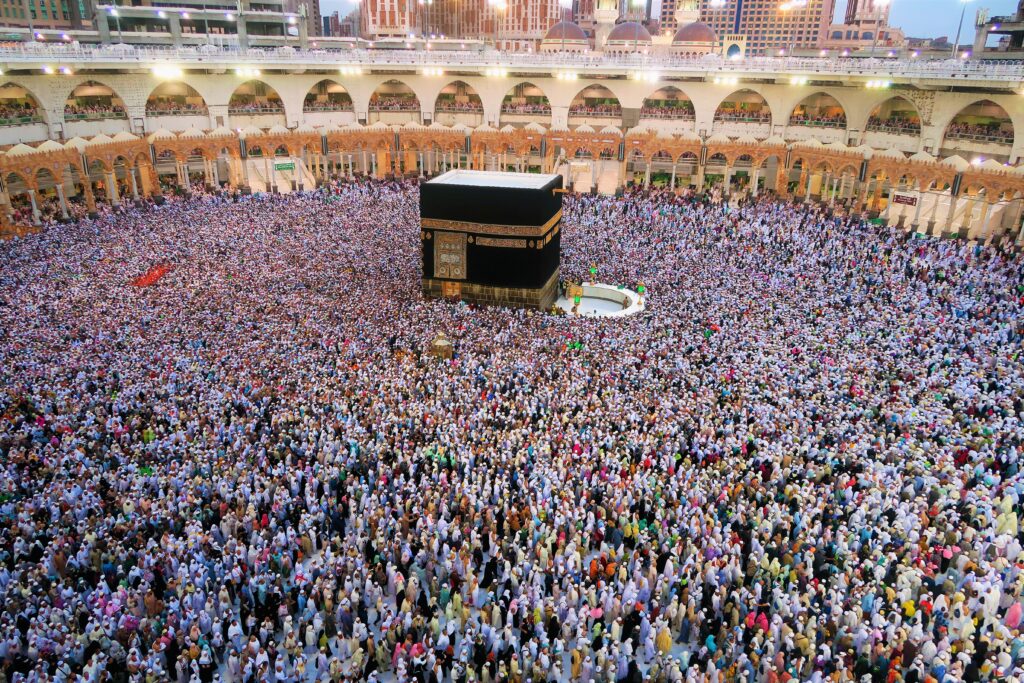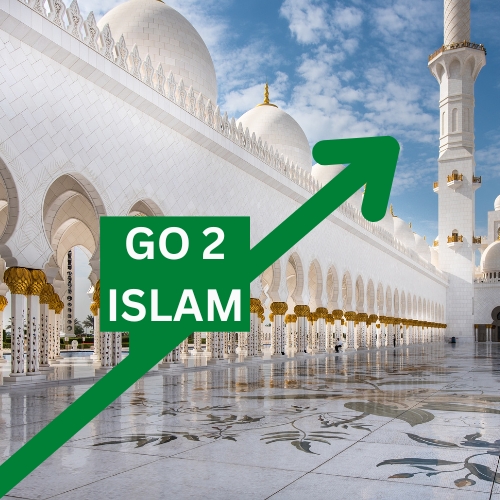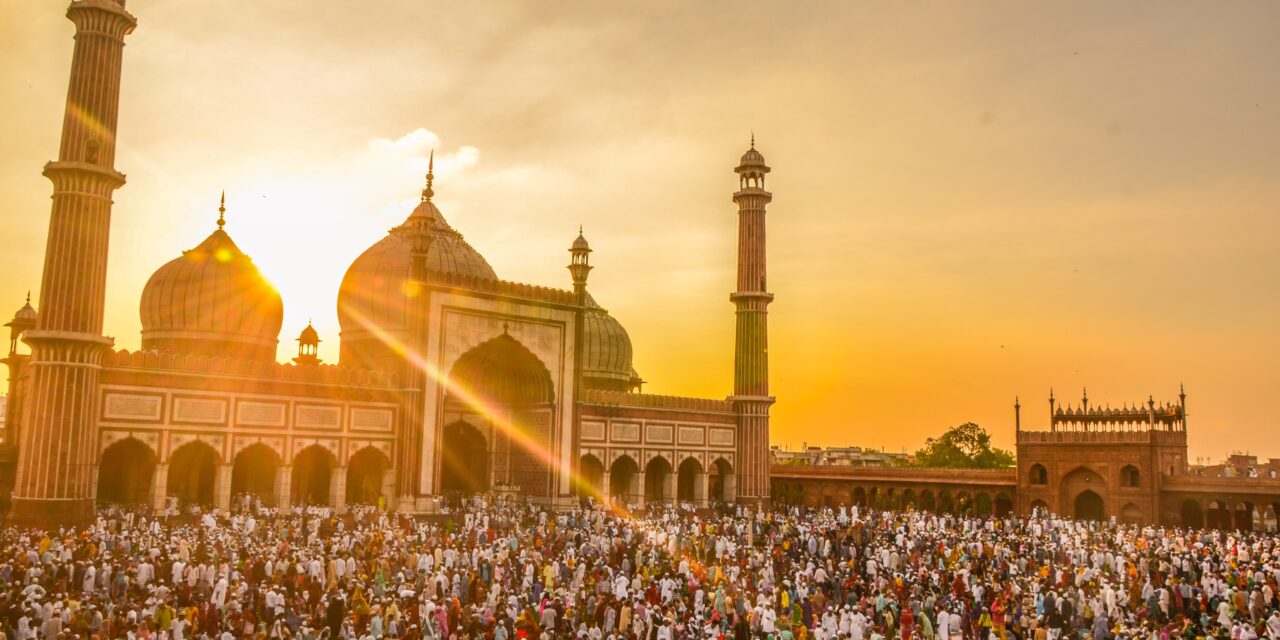Prophet Muhammad (peace be upon him) is considered the last and final prophet of Islam. He was born in Mecca in 570 CE and began receiving revelations from Allah at the age of 40. Throughout his lifetime, he preached the message of Islam and worked tirelessly to spread the religion. He is revered by Muslims around the world as a model of compassion, generosity, and wisdom.
Prophet Muhammad’s early life was marked by hardship and poverty. Despite this, he was known for his honesty, integrity, and kindness. He was also known for his deep devotion to God and his strong sense of right and wrong. As he grew older, he became increasingly concerned about the moral decline of his society and began to seek a deeper understanding of God.
In 610 CE, at the age of 40, Prophet Muhammad began receiving revelations from Allah. These revelations were later recorded in the Quran, the central religious text of Islam. The message of these revelations was simple: there is only one God and all human beings are equal in the eyes of God. The Quran also teaches that all human beings have a duty to worship God and to live a moral and ethical life.
Prophet Muhammad’s message was not well received by the powerful leaders of Mecca, who feared that his teachings would undermine their authority. They began to persecute the early Muslims and to subject them to harsh treatment. Despite this, the message of Islam continued to spread, and by 622 CE, the Muslims were forced to migrate to Medina, where they were welcomed by the local population.
In Medina, Prophet Muhammad established an Islamic state and began to implement the teachings of Islam in the daily lives of the community. He worked to establish a just and equitable society, and his leadership was marked by compassion, fairness, and generosity. He also worked to establish alliances and treaties with neighboring tribes and communities, which helped to establish peace and stability in the region.
One of the most notable aspects of Prophet Muhammad’s leadership was his emphasis on social justice and equality. He abolished the practice of slavery, and worked to improve the rights and status of women, orphans, and the poor. He also established a system of welfare and charity to support those in need.
As Islam continued to spread, Prophet Muhammad faced increasing opposition and hostility from the Meccan leaders. Despite this, he continued to work tirelessly to spread the message of Islam and to improve the lives of those around him. He also led several military campaigns to defend the Muslim community against aggression and to spread the message of Islam to new territories.
Prophet Muhammad’s leadership and teachings had a profound impact on the Arabian Peninsula and the world. He is considered a model of compassion, generosity, and wisdom and his teachings continue to inspire and guide Muslims around the world. He is also considered by many to be the final prophet of God, who completed the message of Islam.
Prophet Muhammad’s legacy is not limited to the Islamic world but extends to all humanity, his teachings and practices are not only relevant for Muslims, but for all people seeking to live a moral and ethical life. His emphasis on social justice, compassion, and equality continue to inspire people around the world.
In conclusion, Prophet Muhammad (peace be upon him) is a revered figure in Islam and continues to be an inspiration for Muslims around the world. His life and teachings provide guidance on how to live a moral and ethical life, and how to build a just and equitable society. He is a model of compassion, generosity, and wisdom, and his emphasis on social justice, equality, and peace continue to resonate with people of all backgrounds and beliefs.
The teachings of Prophet Muhammad (pbuh) are not limited to the Islamic world, but have universal significance. His emphasis on peace, tolerance, and compassion have the power to bridge divides and bring people together. His message of unity, love, and understanding is as relevant today as it was centuries ago, and continues to inspire and guide people around the world.
In the end, the legacy of Prophet Muhammad is one of love, compassion, and understanding. His teachings continue to be a source of guidance, inspiration, and hope for people of all backgrounds and beliefs. He is a true model of a servant leader and continues to inspire people to be the best version of themselves, to strive for peace, and to work towards a better world for all.
It is also important to note that Prophet Muhammad’s teachings and life story have been transmitted to us through the Hadiths, which are the sayings and actions of the Prophet Muhammad (pbuh). Hadiths are considered to be a secondary source of Islamic teachings, after the Quran. These hadiths were recorded by his companions and passed down through the generations, and they provide an in-depth understanding of Prophet Muhammad’s teachings and practices.
Prophet Muhammad’s teachings have an immense impact on the daily lives of Muslims. His guidance on how to worship Allah, how to interact with others, how to conduct business, and how to live an ethical and moral life, continue to shape the lives of Muslims today. His emphasis on compassion, forgiveness, and humility are qualities that all people can strive to emulate.
In addition, Prophet Muhammad’s teachings have also had a significant impact on the development of Islamic civilization. His emphasis on education and knowledge-seeking has led to the development of a rich tradition of scholarship and learning in the Islamic world. His emphasis on the pursuit of knowledge and the importance of education continues to inspire Muslims around the world.
In conclusion, Prophet Muhammad (peace be upon him) is a revered figure in Islam and continues to be an inspiration for Muslims around the world. His teachings and legacy are not only limited to the Islamic world, but they have universal significance. His message of peace, tolerance, and compassion continues to resonate with people of all backgrounds and beliefs, and his teachings continue to shape the lives of Muslims today.
Prophet Muhammad played many roles throughout his lifetime, each of which had a significant impact on the development of Islam and the lives of the people around him. Some of the most notable roles that he played include:
- Prophet: Prophet Muhammad is considered the last and final prophet of Islam, and his teachings and guidance are considered to be the foundation of the religion. He received revelations from Allah and shared them with the people, which were later recorded in the Quran. His role as a prophet was to guide the people towards the worship of one God and to lead them to a moral and ethical way of life.
- Teacher: Prophet Muhammad played a crucial role in teaching the people about Islam and its teachings. He taught the people about the belief in one God, the importance of prayer, and the importance of living a moral and ethical life. He also taught the people about the importance of treating others with kindness and compassion, and the importance of taking care of the poor and needy.
- Leader: Prophet Muhammad played a key role in leading the Muslim community. He established an Islamic state in Medina, where he implemented the teachings of Islam in the daily lives of the community. He worked to establish a just and equitable society, and his leadership was marked by compassion, fairness, and generosity. He also led several military campaigns to defend the Muslim community against aggression and to spread the message of Islam to new territories.
- Diplomat: Prophet Muhammad played a key role in establishing alliances and treaties with neighboring tribes and communities. He worked to establish peace and stability in the region and to build relationships with other communities, which helped to spread the message of Islam and promote understanding and tolerance among different groups.
- Reformer: Prophet Muhammad played a crucial role in reforming the society of his time. He abolished the practice of slavery, and worked to improve the rights and status of women, orphans, and the poor. He also established a system of welfare and charity to support those in need.
In conclusion, Prophet Muhammad played many roles throughout his lifetime, each of which had a significant impact on the development of Islam and the lives of the people around him. He was a prophet, a teacher, a leader, a diplomat, and a reformer, his teachings and practices continue to shape the lives of Muslims today, and his legacy continues to inspire people around the world.
Prophet Muhammad (peace be upon him) is considered to have been successful in his mission for several reasons:
- Spread of Islam: Prophet Muhammad’s mission was to spread the message of Islam and to guide the people towards the worship of one God and to lead them to a moral and ethical way of life. He was able to spread the message of Islam to a significant portion of the Arabian Peninsula and beyond during his lifetime, and today, Islam is the second-largest religion in the world with over 1.8 billion followers.
- Conversion of People: Through his teachings and actions, Prophet Muhammad was able to convert a significant number of people to Islam. His message of compassion, equality, and justice resonated with many, and his emphasis on treating others with kindness and respect was particularly attractive to those who had been marginalized by the society of his time.
- Impact on Society: Prophet Muhammad’s teachings and actions had a significant impact on the society of his time. He abolished the practice of slavery, and worked to improve the rights and status of women, orphans, and the poor. He also established a system of welfare and charity to support those in need. His message of equality and justice helped to create a more just and equitable society.
- Leadership: Prophet Muhammad was a successful leader, He established an Islamic state in Medina, where he implemented the teachings of Islam in the daily lives of the community. He worked to establish a just and equitable society, and his leadership was marked by compassion, fairness, and generosity. He also led several military campaigns to defend the Muslim community against aggression and to spread the message of Islam to new territories. His leadership style was effective in bringing together the various tribes and communities of the Arabian Peninsula under a common cause and his successful leadership in battle and diplomacy helped to establish peace and stability in the region.
- Legacy: Prophet Muhammad’s teachings and actions continue to shape the lives of Muslims around the world. His message of compassion, forgiveness, and humility are qualities that all people can strive to emulate. His emphasis on education, knowledge-seeking and the importance of treating others with kindness and respect, continue to inspire and guide Muslims today.
- The Prophet’s impact on the spiritual dimension of Islam is also remarkable, his emphasis on love and devotion to God, and his emphasis on the importance of inner purification, helped to develop Sufism, one of the most important branches of Islamic spirituality.
In conclusion, Prophet Muhammad (peace be upon him) is considered to have been successful in his mission due to his ability to spread the message of Islam, convert a significant number of people to Islam, impact society, lead effectively, and leave a lasting legacy that continues to shape the lives of Muslims around the world. His teachings and actions continue to inspire people of all backgrounds and beliefs and his message of peace, tolerance, and compassion continues to resonate with people around the world.




